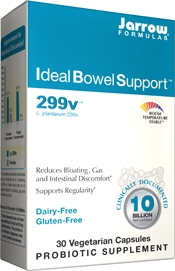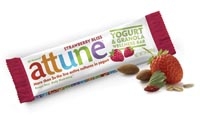Functional Foods 2000, which took place February 29-March 2 in Den Haag, The Netherlands, hosted an extensive forum on pre-and probiotics. Here are highlights from some of the key speakers:
Seppo Salminen, professor of food chemistry and of the food development, health and biosciences program of the University of Turku in Finland kicked off the session by describing the various strains of bacteria that have become relatively well known for their specific benefits. Mr. Salminen, who is actively involved in pre-and probiotic research, touched on the probiotic strains Lactobacillus acidophilus, which is the most popular probiotic in Europe, Lactobacillus GG (LGG), which has been shown to enhance mucous adhesion, L. casei, which, he said, has been inconclusive in immune enhancement studies, Lactis Bb 12, which has been shown to prevent rotavirus diarrhea in children and L. johnsonii, which is still being investigated to determine immune enhancement capabilities. According to Mr. Salminen, "All probiotics strains are different and have different properties. However, although the strains are showing positive results in studies related to gut health, recent studies on certain strains and immune enhancement have been inconclusive so far."
Speaking from Yakult, London, U.K., was Dr. Colette Shortt, science manager, who highlighted the company's probiotic L. casei strain Shirota. According to Dr. Shortt the recommended dosage for probiotic products should range between 6.5 and 10 billion colonizing bacteria. According to a recent study published in the European Journal of Clinical Nutrition, she said the consumption of L. casei Shirota-fermented milk is able to modulate the composition and metabolic activity of the intestinal flora but has no influence on the immune system of healthy immunocompetent males.
Highlighting Lactobacillus reuteri was Walter Dobrogosz of the Department of Microbiology, North Carolina State University, Raleigh, NC. Calling it a "new probiotic," Mr. Dobrogosz highlighted the entire species of L. reuteri and its efficacy in maintaining gut health and immunity. The probiotic, which comes from mother's milk, can survive in the gut at a pH as low as 2.5 according to in vitro studies. Dr. Dobrogosz said, "Reuteri studies have validated the 'probiotic concept' and provided valuable insights concerning the probiotic modes of action." BioGaia Biologics, an R&D company located in Stockholm, Sweden currently holds a patent on the entire L. reuteri species. Both human and animal strains exist and are commercially produced. Mr. Dobrogosz claimed, "The colonizing ability of L. reuteri is excellent."
Business manager Kaarle Leporanta of Valio Ltd., Helsinki, Finland, spoke of the clinical documentation, development and licensing of a branded probiotic strain Lactobacillus rhamnosus GG (Lactobacillus GG or LGG), which has been licensed from Valio to several companies worldwide. According to Mr. Leporanta LGG was isolated from a healthy human; however, a majority of people lack this particular strain in their bodies. LGG is patented and is also Valio's brand name. To date there have been more than 100 published articles on LGG, which include clinical, human intervention and in vitro studies. "Most of what has been done or shown of probiotics has been done on LGG," Mr. Leporanta said. He also went through a long list of benefits for LGG, including its ability to remain alive and active in both food and in capsules, tolerate conditions in the digestive tract, attach to the mucous membrane of the intestine and to bowel mucous and boost immune response. It also has the ability to balance the microflora in the digestive tract, influence bowel metabolism and impede the formation of harmful compounds, prevent and treat different types of diarrhea, repair mucous membrane damage and the immune barrier of the mucous membrane, accelerate recovery from milk allergy and reduce atopic symptoms.
The applications for LGG include fermented milks, fermented dairy drinks, fresh cheeses, whey drinks, fruit drinks and capsules and powders. The recommended dosage is 109 per day, which is the minimum amount of bacteria in yogurt or a cup of milk; however, according to Mr. Leporanta you get even more than that with products that contain LGG. Products that contain LGG are available in 26 countries.
"LC1" has been on the market in Europe from Nestl�, Surrey, U.K., since 1996, bearing the slogan, "Day by day LC1 helps the body to protect itself." According to professor David Richardson, group head of nutrition science and communication nutrition business unit at Nestl�, its claims are supported by a significant amount of clinical trials. "At the end of the day we have a functional food that claims to have positive effects on health. Many of the early functional foods attracted the attention of many segments of the population. However, in 1997 health claims came very close to being banned, so it is important to work with regulatory officials in order to put a product on the market that meets their strict approval." Backed by a significant amount of science the L. johnsonii strain in LC1 has earned a good reputation for itself.
NW
Features
Recent Conference Provides Probiotic Bacteria Overview
Speakers cover the latest developments
Rebecca H. Madley04.01.00
Related Knowledge Center
Related Buyers Guide Companies
-
-
Breaking News | Industry & Market News | Mergers & Acquisitions | Probiotics & Prebiotics
Chr. Hansen Acquires LGG Probiotic Strain from Valio OY
EUR 73 million deal is expected to close this fall.09.20.16
-
Digestive Health | Research | Research News
Lacidofil Reduces Duration of Antibiotic-Associated Diarrhea
ADD episodes were reduced by 24 hours on average.06.02.16
-

Eurotrends: EU Health Claims Update
EFSA has issued more rejections for the latest batch of generic claims.Joerg Gruenwald 01.01.11
-
Products















